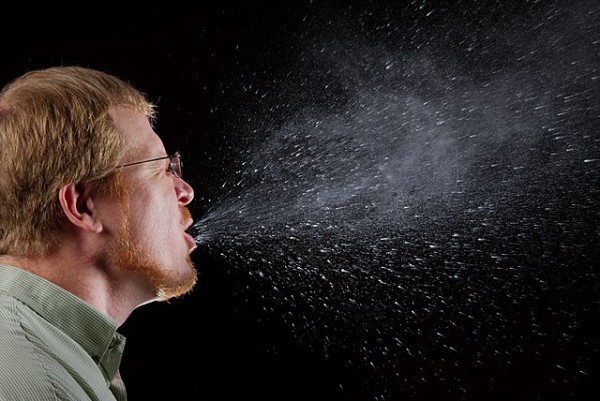Harvard Professor and Entrepreneur Devises a $50 Nasal Spray to Stop COVID-19 from Spreading

According to David Edwards, breathing in the solution can lessen possibly infested aerosols—droplets flying from a person's nose and mouth as he speaks and sneezes by up to 99 percent for six consecutive hours.
Since the pandemic started, leaders in most parts of the world have seriously enforced social distancing and mask-wearing measures to stop COVID-19 from spreading fast.
However, with the spike in cases recently, particularly in the United States, even masks become "imperfect."
A high-performing N95 mask can filter more than 99 percent of the virus from the air. Meanwhile, a lot of cotton masks can filter only 50 percent or even less.
Given that scientists now know that COVID-19 is airborne, many people must have wondered if there is anything else they can do to get rid of the virus.
ALSO READ: Asthma as a Trigger for Severity of COVID-19, Ruled Out by Science
The $50 Product
For entrepreneur and Harvard professor David Edwards, there indeed is something else to do to combat this pandemic, and the good news is that he said, "It is not much more complicated" compared to sniffing a specific saline solution.
With his Sensory Cloud company, Edwards has devised a $50 product with two components called "Nimbus and FEND."
An article posted in Fast Company indicated that "Nimbus is an aerosol squirter" that could transform the liquid into a "cloud of vapor" that can be puffed in front of a human nose to breathe in from the air.
Fend, on the other hand, is a solution that enters the "aerosol squirter," which consists of a salts mixture akin to seawater.
How the Nasal Spray can Help Fight COVID-19
In one of the most recent studies, including ten subjects, Edwards presented that breathing in the solution can lessen possibly infested aerosols-droplets flying from a person's nose and mouth as he speaks and sneezes by up to 99 percent for six consecutive hours.
Meaning, if a person has contracted COVID-19, he needs to be less infectious to other people. In addition, the professor and entrepreneur believe, the product could contribute to the prevention of COVID-19 from being transmitted from the upper respiratory system or the nose, down to the lungs, as well.
While the Nimbus is presented as an "a personal device," people can share it but with careful handling as it does not directly touch a person's body and nose.
Edwards is picturing an "office, restaurant or hospital scenario" that could designate one person to pump it for every entering visitor, just like how people are being checked with their temperature or distributed with hand sanitizers in various establishments today.
Edwards' nasal spray costs $6 a bottle, which can pump 250 doses. More so, while the price is still cheap, the Harvard professor is reportedly planning "profits at scale," as he aims for customers to purchase "subscription packages."
Excitedly, Edwards said, 50,000 people at a big venue like stadium could be treated by "one hundred Nimbi."
DON'T MISS THIS: Scientists Ask WHO to Revise Recommendations, Claiming COVID-19 Is Airborne
How it Works
As the professor has explained, the nose is the human body's face mask. A lot of viruses get stuck inside the nose, such as a trap, giving credit to mucus.
From there, the whole respiratory tract becomes shielded "with airway lining fluid," a combination of fluid and mucus that shields the cells as if it is a "tacky raincoat."
Cilia in those cells, science experts explain, fight the fluids to clear it out, as well as all other infections trapped inside. However, when a person coughs, small bits of the liquid, full of viruses, can be torn apart.
In a study related to Edwards' nasal spray, it specified that one inhales saline and water, the liquid in his trachea has more considerable surface tension.
Consequently, when he speaks or coughs, the correspondent of the air is blowing through the liquid in his respiratory tract. Salt's impact is those tiny droplets are less possible to escape from the surface.
IN CASE YOU MISSED THIS: FDA Approves Becton Dickinson's 15-Minute Handheld Rapid COVID-19 Test
Jul 09, 2020 08:30 AM EDT





